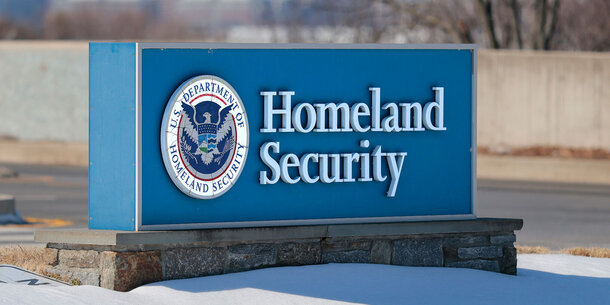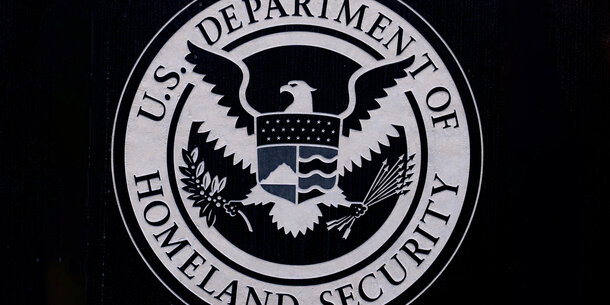This originally appeared in Newsweek.
As Congress begins to deal with the role that former President Trump played in the attack on the Capitol, the Biden administration is grappling with the menace of far-right violence. A high-level national security team has been tasked with conducting an analysis of the threat and developing a response.
In doing so, they will be tempted to turn to the counterterrorism template developed in response to the attacks of 9/11. And yet, while we must match the resolve with which we tackled Al Qaeda and ISIS in confronting the threat of far-right violence, we must avoid the counterterrorism tactics that led to so many grave mistakes and ineffective strategies.
That template led to Muslims, minorities, and movements for justice bearing the brunt of the domestic “war on terror.” Muslim Americans have been as a result treated as a suspect population, over-surveilled and over-policed. The FBI has used its broad authorities to open an investigation with no suspicion of criminal activity, create detailed maps of Muslim communities, and question people about their political and religious beliefs. It has deployed informants to infiltrate mosques, student groups, and community organizations, and carry out sting operations that often ensnared misfits who would never carry out an attack with the government’s help. Vastly expanded surveillance programs fed into this effort, and are also routinely deployed to suppress immigration activists, environmental campaigns, and the Black Lives Matter movement.
Perhaps the best lesson we can learn from the response to 9/11 is that overreach can be just as dangerous as underreach. It’s a lesson our lawmakers must heed, especially as some are poised to make it again.
An idea gaining ground as a response to the Capitol Riot is a new domestic terrorism law. This would be both unnecessary and potentially harmful. Prosecutors already use an expansive arsenal of laws against violent far-right actors. These include 51 terrorism-related charges Congress has made available for entirely domestic offenses, as well as hate crime laws and scores of regular criminal statutes and wide-ranging conspiracy offenses, all of which carry heavy penalties.
In addition to these laws, Justice Department officials have signaled upcoming indictments for the gravest crimes for those who attacked the Capitol: conspiring to overthrow or destroy by force the legitimate government of the United States.
There is simply no need to introduce a new law—especially one that would be a grave threat to minority communities and social movements. A prohibition modeled on the law most frequently used to prosecute international terrorists would empower the government to designate domestic groups as terrorists, criminalizing any form of support for them. Even leaving aside First Amendment challenges, the selection of groups is inherently political, inviting abuse.
To wit, President Trump and Attorney General Barr repeatedly tried to brand criminal justice protests as the handiwork of Antifa domestic terrorists. If they had the authority to criminalize all support of Antifa, anyone who supported the anti-fascist movement, potentially including all those involved in protests alongside them, could be criminally prosecuted.
Another model, championed by the Chair of the House Intelligence Committee Adam Schiff, would empower the attorney general to lay terrorism charges against anyone who committed an assault, damaged property, or threatened such an act if the Attorney General determined it was intended to intimidate a civilian population or influence government policy. If Schiff’s bill had been enacted last summer, Barr could have brought federal terrorism charges against anyone who broke a window during the George Floyd protests.
Instead of pushing for ill-considered new laws, law enforcement must make combatting far-right violence their number one mission, just as they did with Al Qaeda and then ISIS. The new administration must follow through on its promise to develop a strategy for executing this mission, which should detail the steps the Justice Department and the FBI will take to fully investigate and prosecute those who carry out violent attacks and those who help them, and the resources they will dedicate to this effort. It must immediately rectify the failure of the Trump administration to comply with the National Defense Authorization Act for FY 2020 which required that much of this information be reported to Congress.
But the new administration should be careful not cast too wide a net. Not every person who was at Capitol Hill on 1/6 waving a Trump 2020 flag is a violent white supremacist. And not every person who holds vile racist views poses a threat of violence.
Programs targeting Muslim Americans too often blurred the distinction between belief and behavior. Government-sponsored countering violent extremism initiatives have treated Muslims’ political views—such as concern about human rights abuses or U.S. foreign policy—as the hallmark of a person who might become a terrorist. Even the experience of discrimination is twisted into a propensity for carrying out violent acts, as these programs expanded to cover refugees, asylum seekers, and black activists. These initiatives have failed to identify any terrorists, but have created an enormous backlash among the communities targeted. Replicating these failed efforts to identify potentially violent far-right actors will only discredit legitimate law enforcement measures.
In evaluating the 9/11 paradigm for the present day, we cannot ignore the impact of our national leaders in egging on violence. While “terrorism” has become shorthand for what has long been understood as “political violence,” the latter offers a better frame for responding to today’s threat. It focuses our attention on the two issues that we need to solve: violence, which merits a robust law enforcement response; and the political dimension, which requires our elected leaders to find a path forward for a deeply divided country.
Tarring Trump supporters as terrorists will not help us achieve either.



